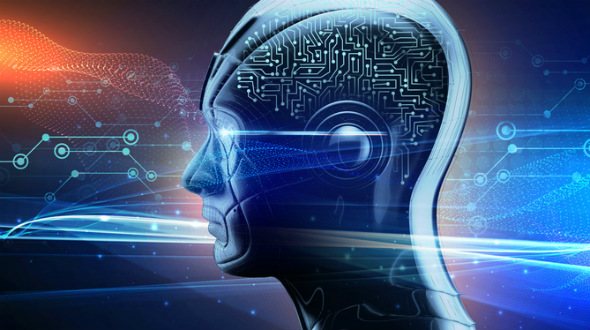Technology predictions for 2018 and beyond

Another year beckons, promising yet more lively debate on the joys and perils of technology once reserved for gadget-loving hobbyists, but now the hot topic on everyone's lips. Virtual hangout spaces, biometric security,
Martin Crapper, Director what technologies he thinks will transform the way we live this year and into the near future.
5G will enable much faster connectivity
“Introduced last year, 5th generation mobile networks and wireless systems (5G) will start to proliferate and make their way into homes and smartphones towards the end of 2018. The greater bandwidth capacity, which Verizon and Samsung are planning to
Digital assistants will become part of the furniture
Smart speakers enjoyed a bumper year in 2017, with products that integrate Amazon's Alexa and Google's Assistant seeing a dramatic surge in sales.
Assistants will also break out of speaker format, and be incorporated into other everyday products – cars, mirrors, and shower heads – as we become more used to using speech commands, and the computers become better at identifying individual voices. "Voice is a more natural way to interact with technology”. says Martin. “Consumers are going to expect that type of interaction across their entire digital landscape. The improved capacity will also enable the connection of more nodes and sensors across cities to make them smarter, and bring down the latency of data transfer to almost zero, crucial for systems like self-driving vehicles.”
AI will start to enable empathetic, intelligent computing – attempting to gain our trust
As digital systems take on more and more of our tasks, they will learn more about us and our habits. This will allow the development of better predictive algorithms to cater to our tastes, which could be used by anyone from retailers and entertainment services to accountants.
Increased knowledge will also eventually enable the systems to converse with their users, and explain why they make certain choices. This will help
As powerful and advanced as the tech products we use every day may be, it is still a stretch to call them ‘intelligent’. Yes, they can perform impressive tasks, but in many ways, they still cannot do the simplest of things, particularly in helping us do what we are ‘meant to do’ or thought to do, as opposed to exactly what we told them to do.
The problem boils down to a question of interpretation, or the lack thereof. Eventually, we'll all have devices and services that do what we're trying to do in the most intelligent, most efficient way possible. The reality of those completely intelligent devices is still a long way off, of course, but in 2018, I think we'll start to see some of the first significant glimpses of what is yet to come, through key enhancements in various personal assistant platforms (Alexa, Google Assistant, Siri, etc.).
Specifically, I believe practical advancements in artificial intelligence will start to enable a more contextual form of computing with some of our devices, particularly smartphones and smart speakers. Going beyond the simple question and single, discrete response that typically marks these interactions now, we should start to see more human-like responses to our queries and requests. Multi-part conversations, more comprehensive answers, as well as appropriate and even insightful suggestions based on what it is we're doing (or trying to do), will start to give us the sense that our devices are getting smarter.
VR will revolutionise social media
Virtual reality has so far mainly been used in the gaming and entertainment industries, often via clunky headsets. But this technology will be picked up by the industrial and commercial sectors to improve workflow, thanks to lighter eyewear, and improved connection speeds that will allow for faster wireless data transfer.
This will also have an impact on social media. Users will soon be able to ‘meet’ each other and hang out in digital spaces rather than just liking photos and commenting on status updates. VR will help to redefine social media, today you have a Facebook page, tomorrow or very soon you'll have a Facebook space.
AR will become part of daily life
Meanwhile, Augmented Reality (AR) will make its way onto handheld devices in a much greater capacity than currently seen. After Pokémon Go introduced the technology to the masses, areas like navigation, interior design, advertising will all benefit from AR – which overlays digital information onto real-time imagery on a screen.
Developer kits on iOS and Android are allowing more software engineers to include AR capabilities in their apps, which will result in a lot more handset up, head up, and less
What implications does this have for IT jobs?
Findings from a recent McKinsey Global Institute report ‘Jobs Lost, Jobs Gained: Workforce Transitions In A Time Of Automation’ indicate that for all the jobs that will be lost to automation in the next 13 years, hundreds of millions of new jobs will be created in response to emerging economies, aging populations and technology development. We need to prepare students for these trends and to anticipate others that will define work in the future. With all of these technical advancements, we can expect the IT job and software engineering jobs sector to be virtually transforming every job in every industry from JAVA jobs and software jobs such as machine learning, deep learning,
If you are a candidate and want to find out more about IT jobs and careers in the IT sector or to see our latest job opportunities, click here or contact on 01582 878858 or email info@redlinegroup.com

